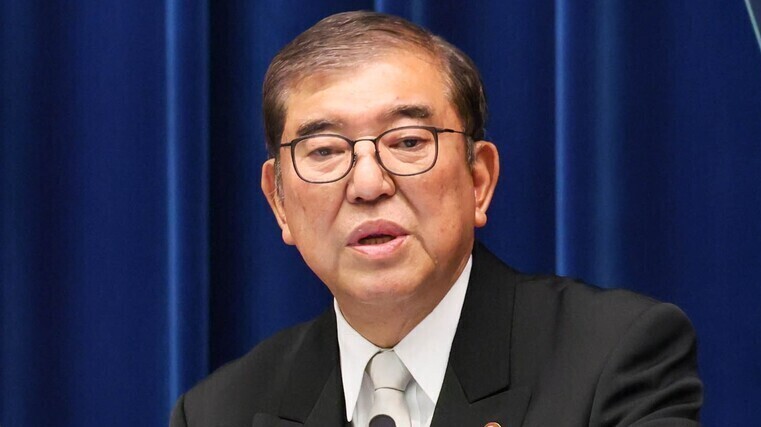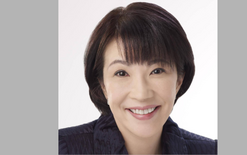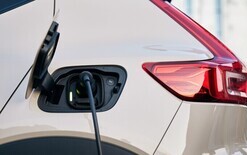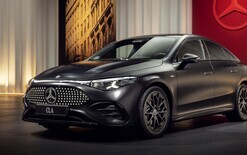Car safety on tariffs agenda

Japan’s prime minister says substance – rather than speed – will be important in tariff negotiations with the US as he pledged to avoid making easy compromises on car safety standards.
Shigeru Ishiba told a parliamentary session on April 21 that Japan must co-ordinate closely with other countries, including those in south-east Asia.
While US President Donald Trump has imposed higher tariffs on imports to fix what he views as imbalanced trade and to cut America’s trade deficit, Ishiba believes talks on how the two nations can co-operate and create jobs in the world’s largest economy will be the key in reaching a deal. “They [the US] are not in a hurry,” says Ishiba, pictured.
Japan started tariff negotiations last week when Ishiba’s aide, Ryosei Akazawa, met Trump and senior officials in Washington.
Akazawa, Japan’s economic revitalisation minister, has urged the US to review the tariffs without disclosing details of the talks.
That said, Japanese government sources have revealed Trump called for the elimination of the US trade deficit with Japan, reports The Mainichi.
The newspaper adds that Trump has expressed his frustration that not enough American cars and agriculture products are imported by Japan.
America has imposed a 25 per cent tariff on car imports, and higher duties on steel and aluminium. While Trump has given “reciprocal” tariffs a 90-day pause, a 10 per cent baseline levy is in place for Japan.
Washington has taken issue with Japan’s regulations, alleging that non-tariff barriers are restricting sales of US-made products such as vehicles.
Ishiba, who says Japan faces a looming “national crisis” due to Trump’s tariff policy, says his country needs to consider how to create a competitive industry structure. “Be it cars or agricultural products, we will not do anything that will affect safety,” he stresses.
Japan has questioned whether the tariffs are in line with World Trade Organisation rules and a Japan-US trade pact.
Under the bilateral agreement that came into force in 2020, Japan lowered its tariffs on American beef among others, while the two countries agreed to end US duties on Japanese cars and automotive parts would be subject to further negotiations.
Ishiba has expressed his willingness to visit the US to meet Trump depending on how bilateral ministerial talks proceed. Akazawa is expected to hold another round of negotiations with the Americans by the end of this month.
Stock shortage warning
China’s clampdown on exports of rare earth minerals could result in major problems for the global automotive industry.
There are fears that essential magnet reserves may run low within months if Beijing takes further action.
China broadened its export curbs earlier this month to cover seven key rare-earth elements and magnets crucial for producing EVs, wind turbines and military aircraft.
This was seen as a direct response to President Donald Trump’s 145 per cent tariffs imposed on Chinese goods.
Government officials, automotive leaders and market traders have voiced fears current stockpiles will run out in three to six months and prompt companies to scramble for extra resources.
Jan Giese of Tradium, a metal trading firm in Germany, says many car manufacturers only have two to three months’ worth of magnet supplies.
He adds: “If we don’t see deliveries to the EU or Japan in that time, or at least close to that, I think we will see genuine problems in the automotive supply chain.”
The focus of China’s stricter controls are on exports of heavy and medium rare earths, which are needed to make high-performance magnets capable of enduring high temperatures.
Elements such as dysprosium, samarium and terbium are critical for advanced military hardware, and electric and hybrid motors, rotors and transmissions in motor vehicles.
A high-ranking automotive executive has warned the restrictions on critical minerals could hit all car manufacturers and rating the export controls as a “seven or eight” out of 10 in terms of severity.
It remains unclear how Beijing intends to enforce the latest export controls, reports UK newspaper the Daily Express.
Production to move to US
Honda says it plans to shift production of its Civic Hybrid hatchback from Japan to the US.
The announcement comes amid a barrage of tariffs by the Trump administration.
“We are currently dual-sourcing the Civic Hatchback Hybrid from our Indiana plant and Japan, but beginning later this year it will be produced only in Indiana,” says Chris Abbruzzese, a spokesman for the American Honda Motor Company.
The reason behind the shift in production has yet to be disclosed. However, another spokesperson said it wasn’t down to a single issue, but instead based on “the company’s policy since its foundation that we produce cars where the demand is”.
Honda’s hybrid hatchback is a semi-electric version of the Honda Civic, which is a top-seller in America when it comes to small cars, reports CBS News.
It is estimated that more than two-thirds of Honda and Acura models sold in the US are manufactured domestically. The company has scotched rumours of any plans to also shift production of its Honda Civic Hybrid sedan, which is manufactured in Canada, to the US.





